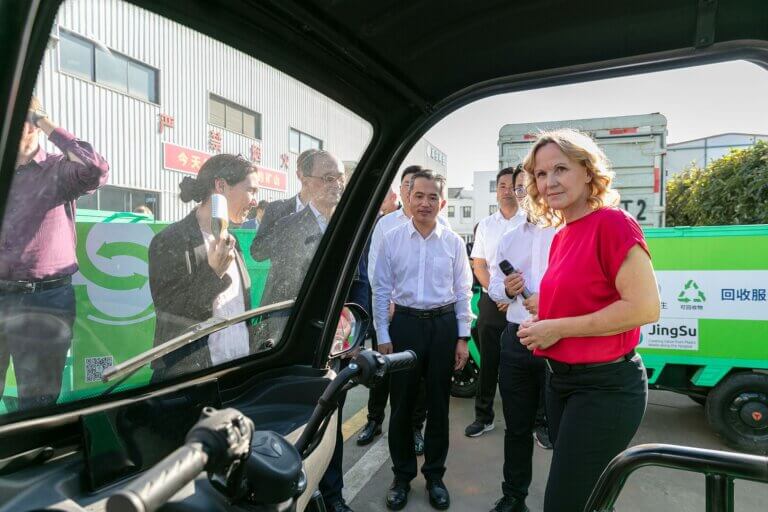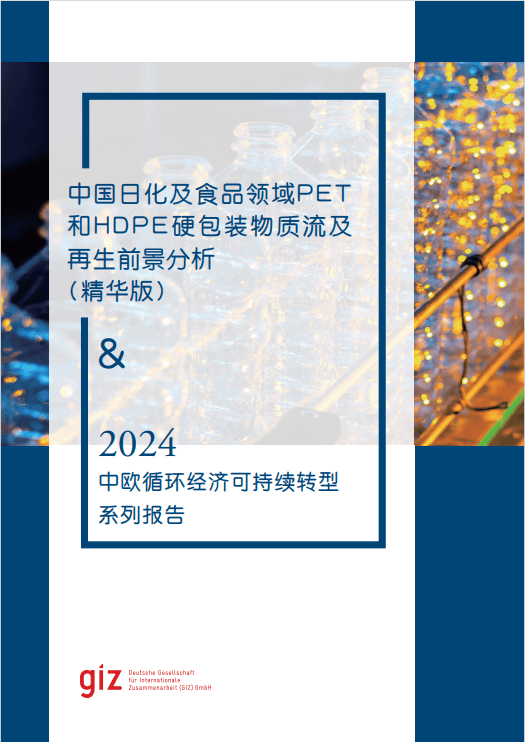Digitalization has made its way into many aspects of people’s everyday life, significantly changing economic, societal and cultural patterns. Fair access to and secure use of data and technology are key factors for viable economic development and social growth. At the same time, the commitment for carbon neutrality and biodiversity protection requires to reimagine well-established business practices and habits. This is especially true for China, as the country acts as a model for emerging economies which strive to innovate and grow sustainably.
The Scoping Study Workshop “Digitization to Advance Sustainability” was held online on February 24th. The German Environment Agency (UBA), the Deutsche Gesellschaft für Internationale Zusammenarbeit (GIZ), and the World Economic Forum (the Forum) organized this high-level workshop within the research framework of the China Council for International Cooperation on Environment and Development (CCICED) as the main event of the scoping study. The workshop brought global experts together to discuss how digitization enabled technological and societal innovations for sustainability in the context of China and beyond. Structured in three sessions, the nexus of digitalisation and sustainability, innovative digital solutions as well as green technologies for low-carbon development and greening the digital sector were discussed.
Mr. Liu Shijin, Chinese Chief Advisor of the CCICED and Vice-Chairman of the Committee on Economic Affairs of Chinese People’s Political Consultative Conference (CPPCC) National Committee, Scott Vaughan, the International Chief Advisor of CCICED and former President of the International Institute of Sustainable Development (IISD), representatives from the CCICED’s partners as well as high-level experts from science, industry and international institutions attended the meeting.
Scott Vaughan framed the workshop, pointing out that this is the first time CCICED has addressed this topic as a stand-alone issue. He also stated that the timing of this scoping study is very important, as the major topics for the coming Phase VII (2022-2026) of CCICED are currently being identified. Liu Shijin underlined the importance of the two megatrends of digitalisation and green economy, characterising them as the “two wings” to empower the economic and social development in China.
Dirk Messner, President of the UBA and council member of the CCICED, highlighted three missing links between digitalisation and sustainability: the need for incentive systems, new perspectives at the corporate level and connecting the communities of AI and sustainability research. Antonia Gawel, Head of the Climate Action Platform and Deputy Head of the Centre for Nature and Climate from the Forum, described a massive global need for transformation towards sustainable systems on the one hand and a rapidly evolving digital ecosystem on the other. There is still a lack of incentives, data collaboration opportunities and also economic models that help us to connect these two worlds.
More than 50 participants followed the active discussion. Findings will flow into a Scoping Study Report, which will be presented at the Annual General Meeting of CCICED and build a basis for a potential Special Policy Study in the coming Phase VII (2022-2026).
The objective of this scoping study is to fully explore the nexus of digitalization, green technology, and sustainability in the Chinese context and provide relevant policy recommendations to the CCICED. The scoping study is supported by Scott Vaughan, the International Chief Advisor of CCICED, and led by Dirk Messner and Antonia Gawel.




